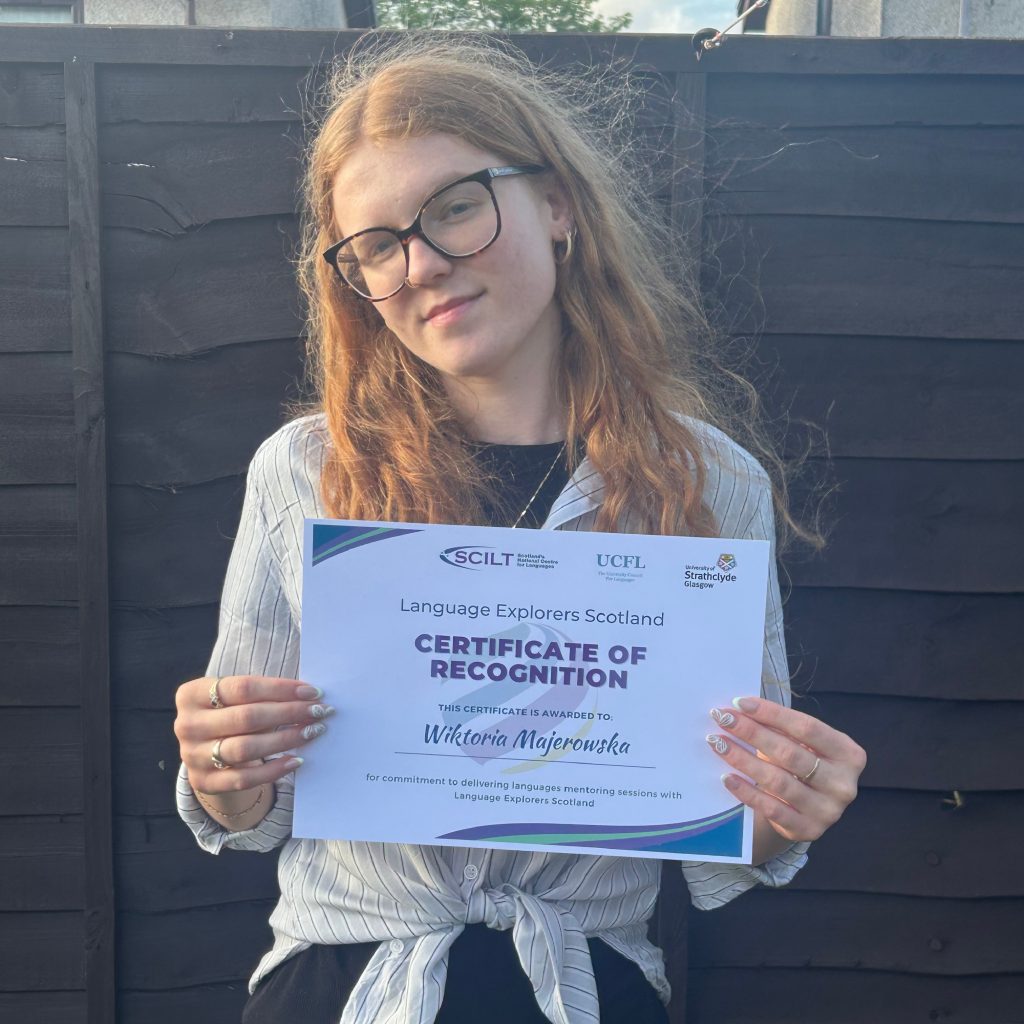Wiktoria Majerowska, a student in her final year of the Master of Arts in Languages (Interpreting and Translating) programme shares her experience mentoring Scotland’s next generation of budding linguists
Outreach to schools is crucial at a time when securing Scotland’s next generation of budding linguists is more important than ever before. Heriot-Watt’s Department of Languages and Intercultural Studies (LINCS), works with Scotland’s National Centre for Languages on initiatives to actively promote the uptake of modern languages in secondary schools. One such initiative is the Language Explorers programme, in which fourth-year students lead a short series of mentoring sessions to share their experiences of language learning and multiculturalism. This year, Wiktoria Majerowska, who is in her final year of studying Spanish and French on the Master of Arts in Languages (Interpreting and Translating) participated in Language Explorers and found it a rewarding experience.
What made you get involved in the mentoring scheme?
I wanted to do more extracurricular activities as they’re important in building up a good CV, and this would be a great way to show potential employers my passion for languages. However, the main reason was the fact that I really identify with the aim of the Language Explorers programme. I remember being in high school and the fact that careers in languages were not as well promoted as those in other fields like STEM.
What did you have to do?
I was paired with a high school in Scotland and had to liaise with a language teacher. Together we scheduled sessions on Teams over 6 weeks. These sessions were delivered to a group of 10 pupils close to choosing which subjects they want to sit their exams on. During these sessions, I taught them more about languages, their value, and the doors they could open for the pupils in the future.
How did it benefit the pupils?
The programme benefited the pupils by providing them with an insight into the complex and interesting world of languages and an idea of how languages are used in the professional world from a mentor with first-hand experience. This is so important in English-speaking countries, where the importance of multilingualism is sometimes forgotten due to the widespread use of English all around the world.

How did it benefit you?
The programme helped me in many ways. Firstly, as an interpreter, public speaking skills are very important to me and leading sessions with an audience helped me immensely in building up my confidence. I had to remain enthusiastic to motivate the pupils to engage with the sessions and had to move on and not get flustered when there were technical problems. This really helped me to improve my confidence speaking to an audience. Secondly, I gained valuable technical skills as I had to organise meetings on Teams, share the link with the teacher, and learn how to share presentations during the meetings. These kinds of skills are extremely valuable in today’s post-pandemic world.
What has been the best thing about being a Language Explorer?
The best thing has definitely been the ability to speak about something that is so important to me and that I am so passionate about. Growing up bilingual and then going on to study interpreting and translating, languages are a huge part of my life and being able to share that with others was amazing. The last session I did with the pupils was a recap of all we talked about and seeing how much they had remembered and learned was the highlight of the experience for me, as I could tell they really benefitted from the sessions and learned so much about languages.
Would you recommend it to others?
I would absolutely recommend the program to others as the experience was very enjoyable and formative and it’s a great opportunity to gain new skills and leave your comfort zone.
